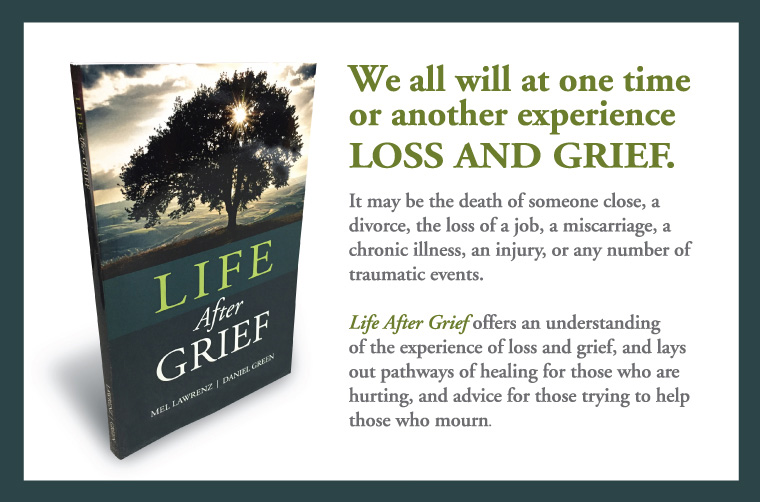It is understandable why we might avoid talking about or facing death. The subject raises questions, fears, and anxiety. Yet we all know that death is part of life. It is one of the great inevitabilities of all of our lives, unless Christ returns before we die. So it is not surprising that God’s Word speaks into this reality. Living the Bible, in other words, includes facing the end of our lives in this world.

One of the major blessings of knowing and living the Bible is that we are warned about the most difficult parts of life before we get there. The vastness of biblical revelation, written over a period of four millennia by dozens of prophets and apostles and their associates in a variety of cultures, is that we get an emerging understanding of that absolute reality: death.
Among the many helpful biblical passages that help us to understand and deal with the harsh reality of death is Romans 8, which includes:
I consider that our present sufferings are not worth comparing with the glory that will be revealed in us. For the creation waits in eager expectation for the children of God to be revealed. For the creation was subjected to frustration, not by its own choice, but by the will of the one who subjected it, in hope that the creation itself will be liberated from its bondage to decay and brought into the freedom and glory of the children of God. We know that the whole creation has been groaning as in the pains of childbirth right up to the present time. Not only so, but we ourselves, who have the firstfruits of the Spirit, groan inwardly as we wait eagerly for our adoption to sonship, the redemption of our bodies. For in this hope we were saved. But hope that is seen is no hope at all. Who hopes for what they already have? But if we hope for what we do not yet have, we wait for it patiently. (Romans 8:18-25)
The book of Romans has many passages that give us the big picture of who God is, who we are, what life is, what it could be, and the major struggles of life. Here in Romans 8 the Apostle Paul tells us that life includes “suffering,” “frustration,” “bondage,” “decay,” “pain,” and “groaning.” Sooner or later we all come to experience these things. It is good that the Bible warns us ahead of time.
This is one of the great benefits of a biblical world view: we should not be surprised. When wars break out, we are not surprised. When political leaders are plunged into scandal, we are not surprised. When we are strongly tempted and when we sin, we are not surprised. When we get sick, we are not surprised. When a natural catastrophe hits, we are not surprised. And when a loved one dies—as much as we feel that “this should not be” or “this cannot be”—we know, deep in our hearts, that death is part of life. We are not surprised.
And long before we ourselves get some dire medical diagnosis or hit our heads falling off a ladder and end up in an intensive care unit or creep up toward the average lifespan, we must say to ourselves: we are not surprised.
Does the Bible teach that death is part of a great cycle of life? Not exactly. The fundamental lesson of Genesis 3 is that suffering and death are consequences of sin. It is not the way things were meant to be. So we do not need to do mental gymnastics to show that death is not ugly or painful or difficult. It is. When Jesus went to the tomb of his friend Lazarus, he had a strong reaction. The text (John 11:35) says “Jesus wept.” The word “wept” however does not mean gentle crying. It includes a sense of anguish and even indignation. Jesus showed the same reaction that comes to us when we face death: this hurts; this is ugly; this should not be. But it is true. Everyone dies. The question is: how does God help us at this inevitable crossing? We may know ahead of time if we have a terminal illness, but then again, we don’t know if today we will be in a fatal auto accident on the highway.
When Jesus brought Lazarus back from death Jesus was sending a message that the power of God is greater than death. This was a signal that God knows how painful death can be, but that death does not have to have the final word.
And so we get this too, in Romans 8: “we wait eagerly for our adoption to sonship, the redemption of our bodies. For in this hope we were saved.” Death is inevitable (unless Christ returns first); but death does not have the final word.
(to be continued)




When. Will this be contuuned I need to knowi am I’ll and some of. Y doctors say they are running out of tools in the tool box does Doug Schoenberg still come to visit?
Thanks for your steadfast ‘app’ of Gods Word …… For ALL seasons. Of course we are looking for your commentary on the rest of this verse.
One of that teen group that crowded into the ‘barn lumber home’ in Wales ( 70’s -80’s ) was quick and clever. Mark Strong had asked the kids to share what would be written on their tombstones. That vibrant boy didn’t hesitate…..” To be continued”. He is now a Salvation Army officer in an urban setting, sharing Christ’s love ……..unlimited:)
Thank you, Mel. Just a short note. I believe that Jesus’ weeping here includes but goes even beyond his indignation for earthly death. The reality is that Jesus knew exactly where Lazarus was prior to his resurrection–he was with the Father in Abraham’s bosom. Jesus knew that He had been commissioned to bring Lazarus back from “life” to “death”–that is “life” in this world of suffering. Recall that right after his resurrection, Lazarus himself was sought out by the Jewish leaders for slaughter because many were turning to Christ as a result of the astounding miracle that Jesus had done. Why was it necessary for Jesus to perform such a miracle? Precisely because of the lack of faith that exists in this life of death in this fallen world. Jesus could not help but to weep. God bless you all.
Mel, I am looking for a book and or study on the second coming that would give a clear understanding of what all the symbolism means. What would you suggest?
https://www.amazon.com/Message-Revelation-Bible-Speaks-Today/dp/0877842930
In the Science community most scholars seem to say that there was no Jesus or any Israel nor any evidence of a King David however, who interprets the data?
Some in science say that the brain is the all and once it dies then your just gone and many believe that life never ends
Did he not demonstrate life everlasting? When he rose again?
said this follow me and rise again
gospel I see
much love to Elmbrook Church
Kevin